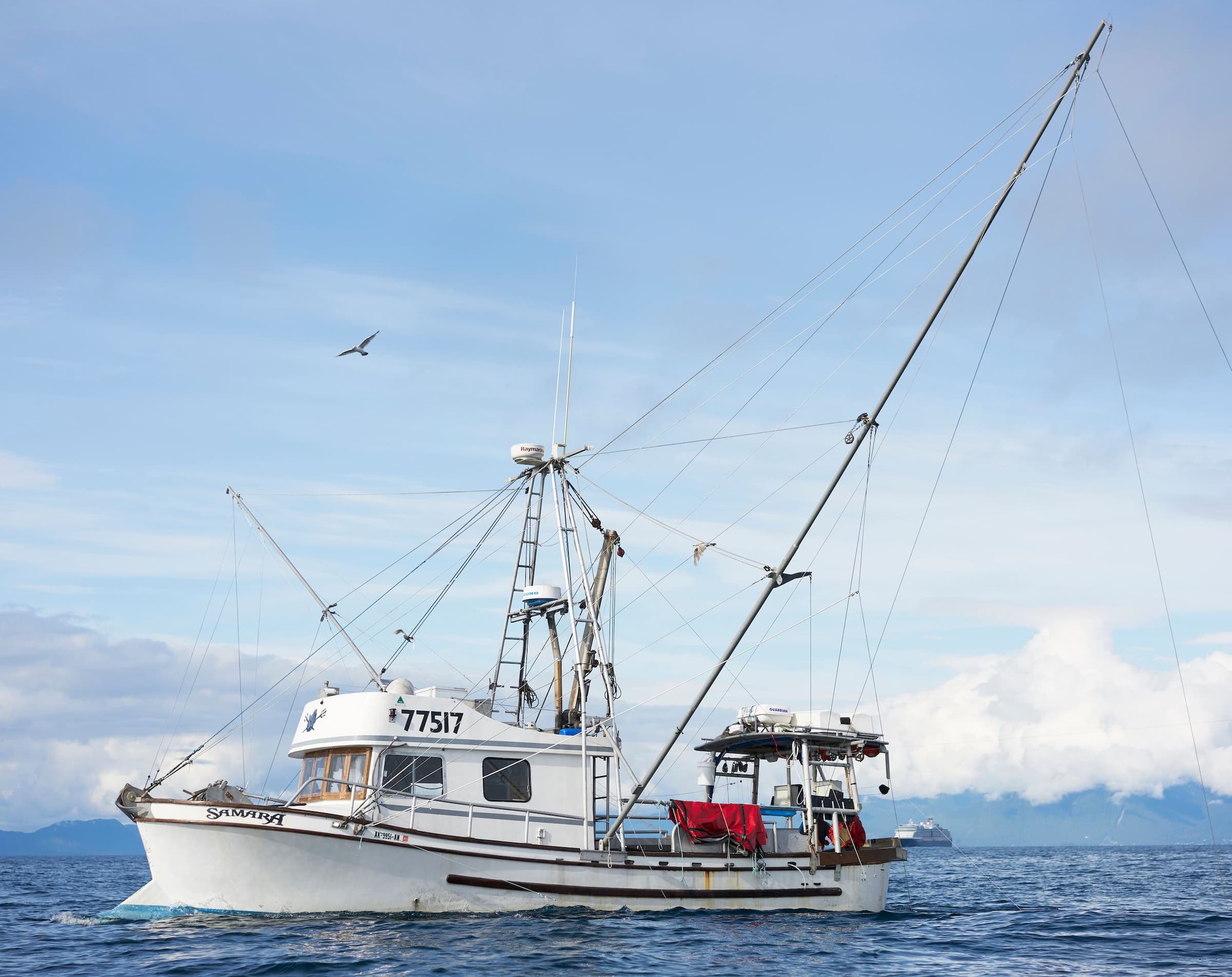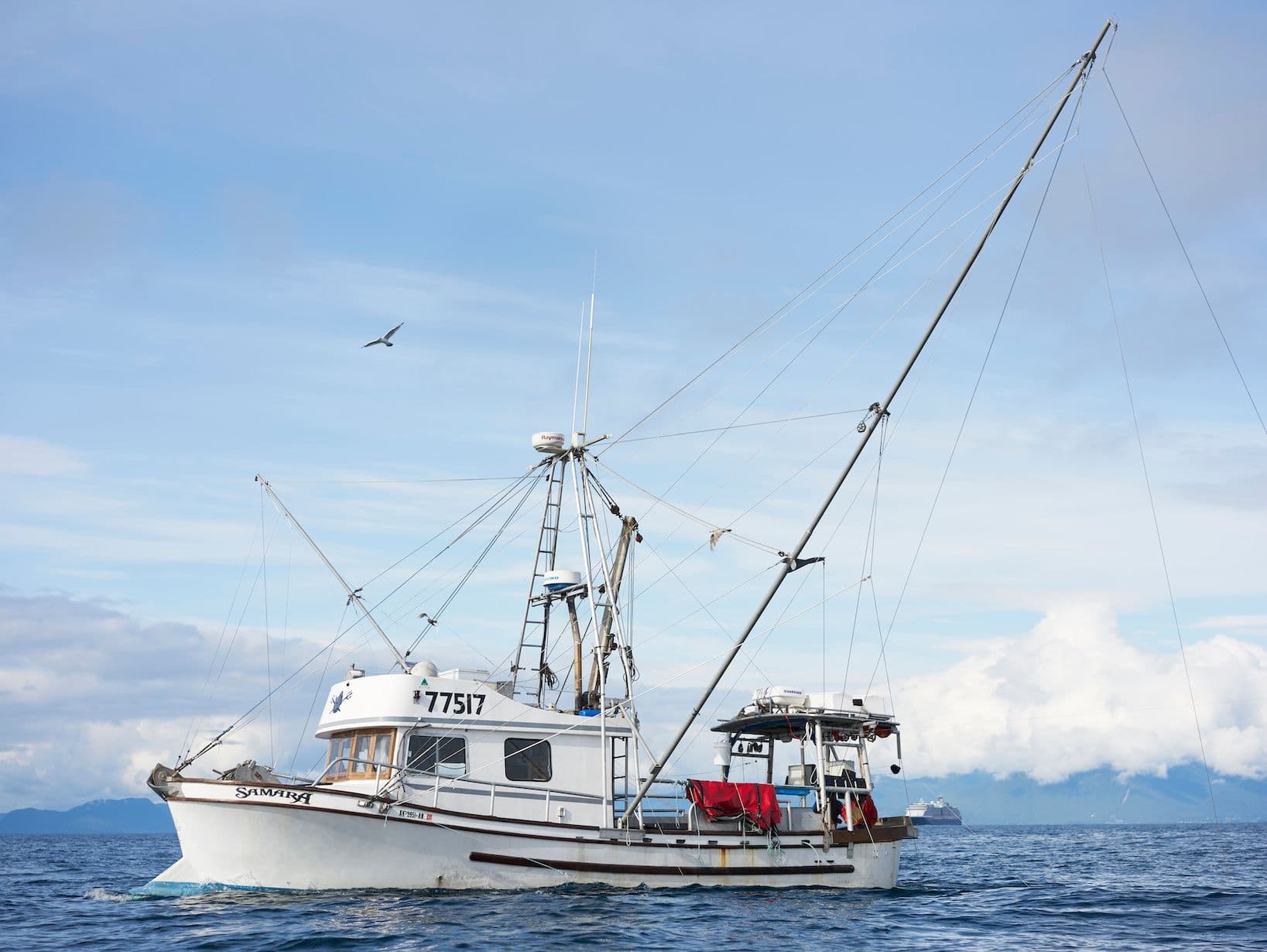Sitka Seafood Market sources king (Chinook) salmon from small-boat troll fishermen in Southeast Alaska because they catch salmon from a fishery that is carefully and responsibly managed by the State of Alaska and the National Marine Fisheries Service (NMFS). However, this summer may be the first time that Southeast troll fishermen aren’t allowed to fish for king salmon — a primary source of income for many — because the sustainable hook-and-line fishery is tied up in an ongoing lawsuit.
What is the lawsuit? Why is the fishery possibly going to be closed?
This spring, a U.S. District Court judge in Washington state upheld a controversial recommendation from Washington state-based Wild Fish Conservancy (WFC), who is suing NMFS on several counts that are largely technical and policy-related.
The lawsuit argues that the National Oceanic and Atmospheric Administration (NOAA) — under which NMFS operates — authorized commercial king salmon harvest in Southeast Alaska to reach levels that would negatively impact an endangered population of whales called the Southern Resident Killer Whales (otherwise known as orcas), in Puget Sound, Washington which prey on wild king salmon.
Salmon management in Alaska is delegated from NMFS to the State of Alaska through the Department of Fish and Game. Some salmon fisheries in Alaska, including the summer king troll fishery in Southeast Alaska, interact with salmon that originate from outside the state. Hook-and-line fishermen in the troll fishery harvest king salmon that are not only returning to their natal streams in Southeast Alaska, but also returning to natal streams further south in Canada and in the Pacific Northwest.
That's why some of Southeast Alaska’s salmon fisheries are managed under the bilateral Pacific Salmon Treaty, which governs shared harvest and conservation responsibilities between Alaska, British Columbia, and the lower-48 United States. These far-roaming fish are considered "federal fish" and must be accounted for with an "incidental take statement" as part of the federal fishery's Biological Opinion — similar to an environmental impact statement, but for fishing — that ensures the sustainability of the fishery for all parties across the entire Pacific Northwest coast. This statement is necessary for the summer Southeast king salmon troll fishery to operate under the Pacific Salmon Treaty. However, WFC challenged NMFS’s most recent 2019 Biological Opinion claiming that it doesn’t sufficiently account for Southern Resident Killer Whales foraging (for king salmon) and thereby violates the Endangered Species Act and National Environmental Policy Act.
The judge signed an order requiring NMFS to rewrite this statement and, while NMFS staff have been working hard for months to replace the documents found by the courts to be inadequate, they will not be ready and approved in time for the summer king fishery which begins July 1st. The lawsuit is in the appeal process, and the State of Alaska is requesting a decision by June 23 so that fishermen can gear up for the summer season which begins just one week later.
To anyone who isn’t fluent in transboundary federal fisheries policy for highly migratory and anadromous fish, this may seem mostly Greek, but for Southeast Alaska’s troll fishermen, it’s a heavy blow.
“The decision . . . was a gut punch. [F]ishing is how I can afford to raise my family in Sitka. So it’s really affected me in sort of a more existential way: Who are we if we’re not fishermen? Who are we if we’re not catching king salmon on our boat?”
— Jacquie Foss, Seafood Producers Cooperative member and commercial fisherman, F/V Axel
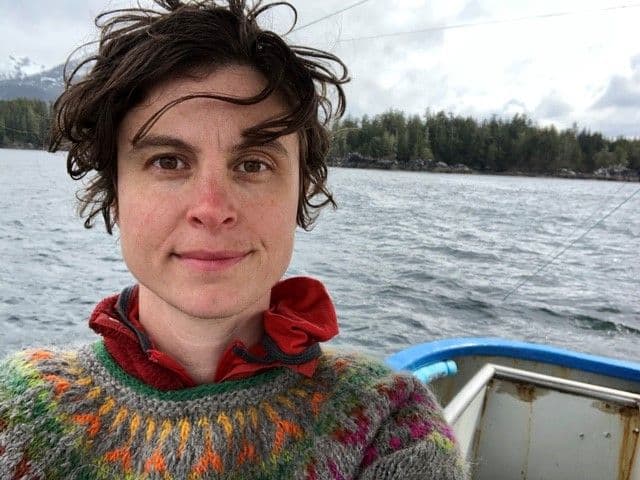
Both the Alaska Trollers Association (ATA) and the State of Alaska are working to appeal the decision with support from the Alaska Longline Fishermen’s Association (ALFA), the Alaska Department of Fish and Game (ADF&G), as well as a delegation of Alaska’s political leaders who voiced their condemnation of the lawsuit. These groups are helping local, state, and industry bodies to work with Alaska’s congressional delegation to appeal any decision that does not protect Alaska's sustainable troll fishery.
ATA and ALFA argue that WFC’s claims in this lawsuit run counter to a substantial body of research that reveals that the root cause of the concerning decline in the Southern Resident Killer Whale population is a complex bevy of habitat threats such as pollution, habitat loss and disruption, climate change, as well as inbreeding which scientists say, “strongly influences the population dynamics of [this] endangered killer whale population.” What’s more, the Pacific Salmon Treaty fishery managers have increased the amount of king salmon available to the SRKW for decades with no substantial data that these management changes (supposedly increasing their prey) have positively impacted the population.
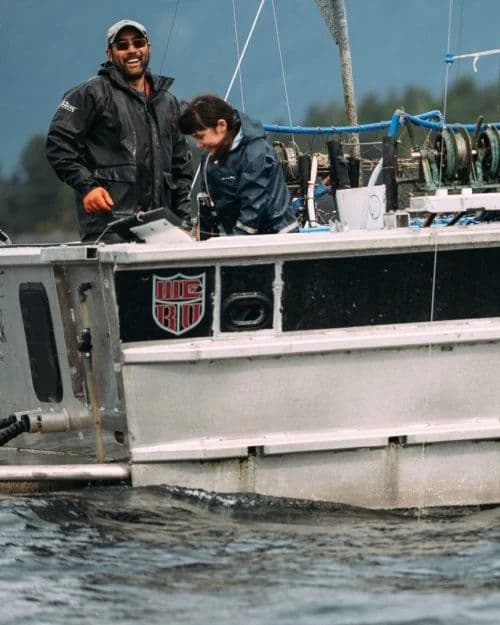
“We know that our fishery has minimal or no impact on the Puget Sound orcas. Yet we are being scapegoated for a multitude of other problems that they face. Our fishery has proven to be sustainable for over 100 years. It would be a very sad day if the WFC’s actions were to bring about the demise of the greatest supporter of salmon and salmon habitat. Yet, that is what is happening. Highly experienced, veteran trollers faced with the possibility of not being allowed to fish are looking for jobs in other industries.”
— Tad Fujioka, Seafood Producers Cooperative Board Chair and commercial fisherman, F/V Sakura
Leaders close to the industry see the lawsuit as not only a strategic misstep in the fight for healthy wild salmon runs, but also as an irresponsibly divisive act that punishes salmon's greatest advocates while ignoring the definitively detrimental impacts of pollution, Southern Resident Killer Whales inbreeding, and a host of other human-caused disturbances in Puget Sound itself.
How are Southeast Alaska communities affected by the WFC case?
The closure of the summer troll fishery will greatly impact the economic stability of fishing communities in Southeast Alaska, and will also significantly impact businesses like ours that depend on this fishery. It will cause severe economic hardship for the fishing fleet — which derives an estimated 44% of its income from the king catch alone — and the Southeast Alaskan fishing communities that benefit from it.
“The Wild Fish Conservancy has framed small-boat fishing families as a threat to orca whales, rather than taking on scientifically demonstrable and far more challenging impacts like dams, pollution, and unsustainable urbanization. While it is unlikely that any orca will benefit from this ruling, rural Alaska people and communities will absolutely suffer.”
— David Levine, President and Founder of American Sustainable Business Network and member of Business for Conservation and Climate Action
Levine goes on to point out that this “attack on some of Alaska’s smallest and most sustainable businesses” is particularly tragic, ironic even, when Alaska’s troll fishermen are some of the “most vocal and active conservation advocates anywhere, and to lose them would be an irreplaceable loss to the conservation and small business communities.”
Small-boat troll fishermen are no strangers to the volatile nature of fisheries, but this decision injects extreme uncertainty into the future of trollers' livelihoods and the incongruity of this leaves fishermen feeling reasonably frustrated.
“The Wild Fish Conservancy continues to miss the mark when it comes to salmon conservation; instead of attacking local communities and families that rely on wild salmon, they could be supporting meaningful action that leads to real solutions. Our fleet and organization will continue to fight Wild Fish Conservancy’s spurious lawsuit and do everything we can to protect the salmon that our fishery and families depend on.”
— Jeff Farvour, Alaska Longline Fishermen’s Association Board Member and commercial fisherman, F/V Apollo
How is Sitka Seafood Market affected by the WFC case?
We’re directly impacted by the decision to close the summer troll fishery. In fact, all of the troll-caught king salmon we send to our members is caught in this fishery. Without the ability to buy from this sustainable hook-and-line fishery, we are now working on procuring different premium, sustainable seafood options for our members that will meet our rigorous sourcing criteria promising the same delicious quality and culinary excellence that our members know and expect from our brand.
That said, the details of this case are unfurling slowly and so we don't yet know the full implications of this decision. What we can say is that we are tracking closely on this issue and regardless of the outcome, we will approach our future sourcing decisions as we always do — by leading with our values of transparency, sustainability, and community support.
What is our stance on the WFC case?
We are disappointed by the decision to close this historic and sustainable hook-and-line fishery that’s one of the best-managed sustainable fisheries in the world. As our members know, we consistently support responsible fisheries management practices. It’s why we started this business and it’s baked into how we operate.
That’s also why we’re so disheartened to see this extrapolated lawsuit — one that puts the Southeast Alaska troll fishery in jeopardy while lacking scientific basis — move forward. It’s sad to say that this decision will likely have irreversible detrimental impacts on the Southeast Alaskan fleet as well as the many businesses that support doing it right — fishing sustainably with low-impact gear to catch high-quality wild seafood.
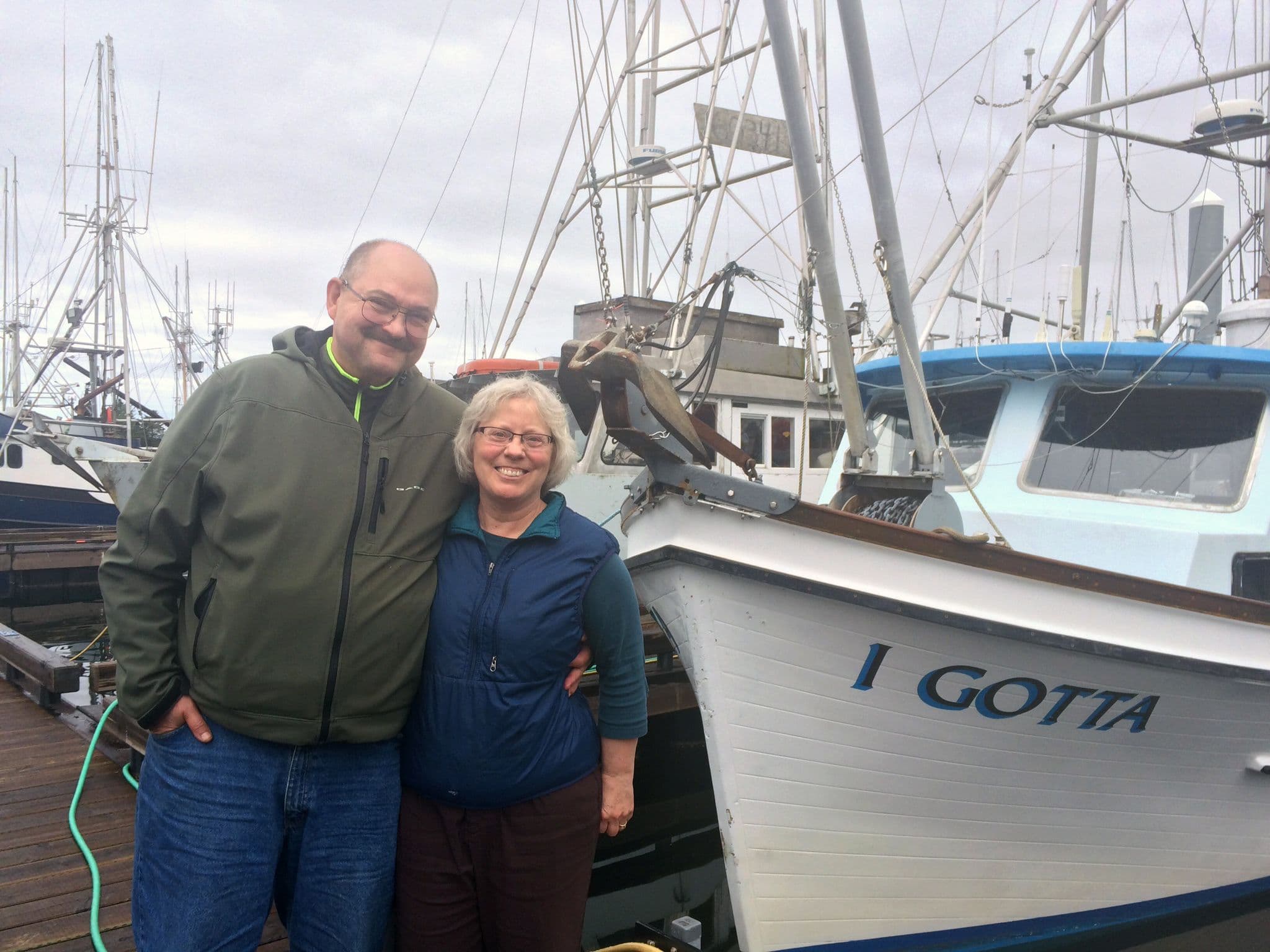
“I have been trolling salmon in SE Alaska since my parents took me fishing when I was 5 months old in 1950. I have been an active salmon conservationist since I read “Return to the River”, the life history of a king salmon when I was 12. This misguided lawsuit to terminate our small boat, conservatively managed, high-quality fishery is the most heartbreaking action I have ever dealt with in a lifetime of work to conserve, sustain, and enhance salmon runs.”
— Eric Jordan, commercial fisherman and member of the Alaska Longline Fishermen’s Association and the Fishery Conservation Network, F/V I Gotta
Anyone who cares about the future of our oceans can see that the decline of the SRKW population is a concerning litmus of the human impacts on our oceans. Our concern, however, is best balanced by determination to find better ways to live and feed ourselves with respect for our environment and each other. It’s clear to us that small-boat hook-and-line fishermen are leaders in the sustainable seafood movement as well as the broader fight to restore sustainable food systems and we are proud to support them. Our company was founded by a salmon troller and we have shared trollers’ catch with members across the lower-48 for over a decade because we believe that they represent the best that the sustainable seafood movement has to offer in both quality fish and community impact.
That’s why we support ALFA and the ATA through our 1% For the Wild Fund. Those who would like to support the appeals process are encouraged to donate to the ATA’s legal fund and to sign ALFA’s letter of support.
June 21, 2023 Update:
The 9th U.S. Court of Appeals today halted implementation of the U.S. District Court decision that would have shut down the Chinook fishery in Southeast Alaska for the summer. This case is still evolving. We will continue to follow it closely. Read our full update here.
